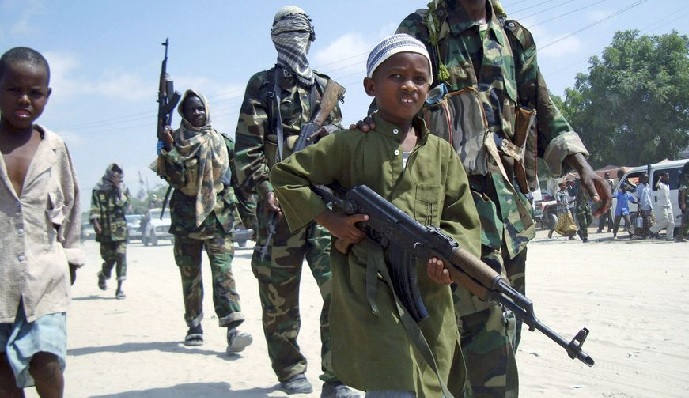
A top U.S. commander warned Wednesday that terror groups such as al Qaeda and Islamic State are finding new sanctuaries in Africa where they can rebuild their forces and attract new recruits.
Air Force Maj. Gen. Dagvin Anderson, head of special operations for U.S. Africa Command, sounded the alarm even as the Pentagon was announcing the death of senior leader of the Somali terror group al-Shabab in a U.S. airstrike last month. Abulqadir Commandos, reportedly a senior commander of the jihadist group, was killed near Saakow, Somalia, on Aug. 25, U.S. officials said.
While groups such as the Islamic State and al Qaeda have been battered by attacks from the U.S. and allied nations over the past few years in the Middle East and Afghanistan, they are increasingly relying on Africa as a safe haven where they can reconstitute their dwindling numbers, while co-opting local fighters into their ranks, U.S. commanders say.
Maj. Gen. Anderson noted that both terrorist groups have frequently stated they intend to attack and undermine the United States.
“Africa is providing them that safe haven, that venue where they can establish themselves,” he said Wednesday during an online interview with the American Enterprise Institute.
Some regional militants in Africa are now primarily identifying themselves as members of transnational terrorist groups like al Qaeda rather than their local tribes. Once they become aligned, their goals have changed, Maj. Gen. Anderson said.
“They’re identifying themselves as al Qaeda. They often carry pictures of [Osama bin Laden],” he said.
Affiliates of the Islamic State coming from Mozambique, for example, have become more violent and now pose a greater threat to the region, Maj. Gen. Anderson said.
With their historical connections to the continent, the French have taken a lead role in the fight against jihadist militants in Africa. The pressure from French military forces has changed the narrative, Maj. Gen. Anderson said.
The terrorists, he said “are spreading out. They’re much more blunt and direct. They appeal to the disaffected who want to take action.”
Even without bin Laden, al Qaeda remains a threat in Africa. And unlike Islamic State, al Qaeda affiliates and allied groups tend to operate more under the radar, he said.
“They don’t want to draw attention from the West, especially the United States,” he said. “They are very cautious [and] stay below that threshold.”
The Somalia-based al-Shabab, which has sworn allegiance to al Qaeda, has proven to be a particularly formidable foe, taking advantage of a weak central government in Mogadishu to withstand a fierce U.S.-led campaign. Although the group has largely been contained to the southern parts of Somalia, it has carved out a de facto safe haven there, Maj. Gen. Anderson said.
“It has allowed them to develop their planning, their financing and their media operations to a high degree,” he said.
The death of Commandos last month is likely to prove an organizational setback for al-Shabab.
“Operations such as this strike at the heart of al-Shabab and are critical to degrading their ability to spread chaos and violence in Somalia and beyond,” Army Gen. Stephen Townsend, commander of U.S. Africa Command, said in a statement.
In addition to Commandos, several other key al-Shabab leaders have been killed in U.S. precision airstrikes in recent months.
“With our Somali partners, we continue to weaken the al-Shabab network by removing key leaders from its ranks. Doing so makes Somalia and America safer,” Gen. Townsend said.
But Maj. Gen. Anderson cautioned that the U.S. military needs a coherent strategy to engage in Africa. U.S. Africa Command provides support for operations and is currently training Somali security forces to help build the country’s defense capability.
“We can compete very effectively in Africa. Many nations want to partner with the United States,” Maj. Gen. Anderson said. “We have the will and the values to engage with our partners as equals.”
